ALL THE LIGHT WE CANNOT SEE
By Peter Michael
PHOTOGRAPHY BY ROBIN SUBAR
A three-panel mural by Jenny Vyas
By Peter Michael
PHOTOGRAPHY BY ROBIN SUBAR
A three-panel mural by Jenny Vyas
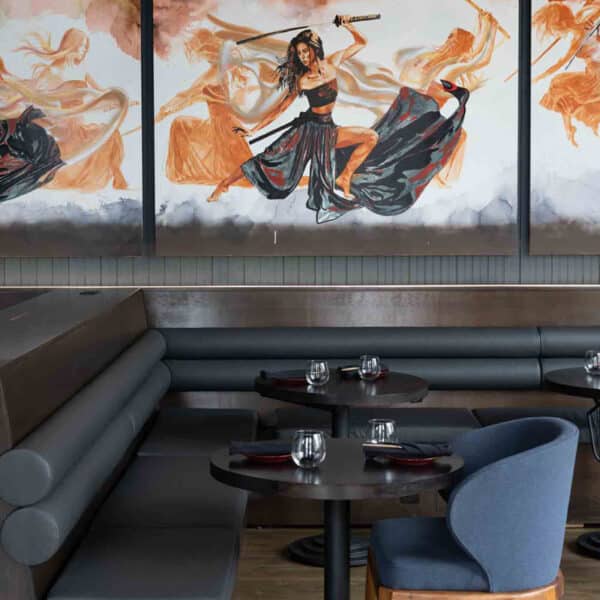
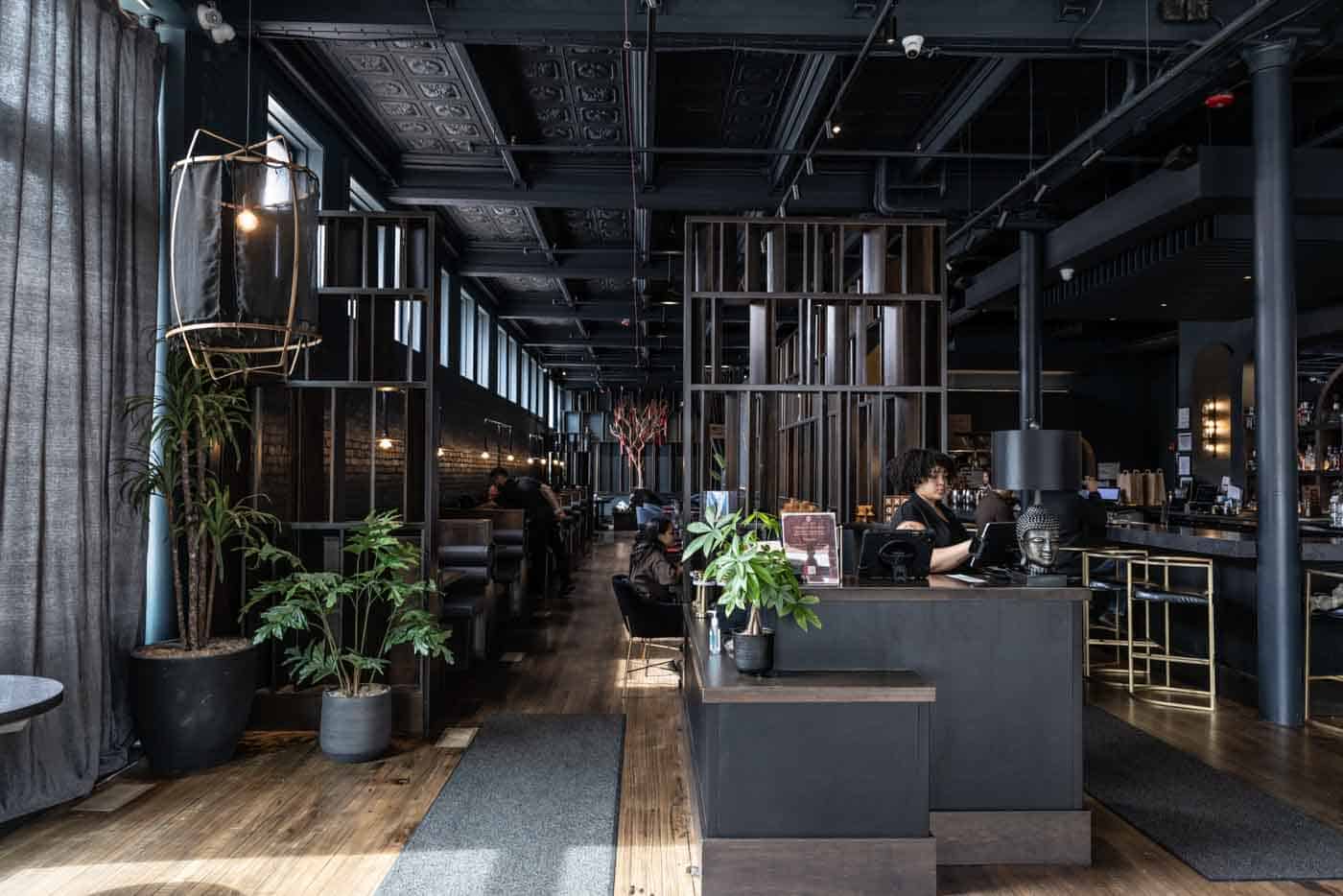
We are sitting at a candle-lit four-top, on the Sunday of Valentine’s Day weekend, in one of the sleekest restaurants in the western suburbs. It’s 4:30 p.m., arguably the least romantic time to book a dinner with your amour. Yet three-quarters of Leilani Asian Fusion’s low-slung seats and chiaroscuro-lit booths in Aurora are filled with earlybird Romeos and Juliets. They are doing what all love birds always do at Leilani: They’re sharing hushed exchanges and nibbling away at platters of gochujang-glazed Korean Chicken wings, lemongrass shrimp and teriyaki-glazed Scottish salmon.
Most of us are also sipping luminescent cocktails—pale-white wasabi-lychee martinis and lilac-tinted elderflower prosecco spritzes—which glow as if they were spiked with the nectar of some biofluorescent wildflowers from James Cameron’s Avatar.
It’s undeniably dark in here. Shadows stretch and purl into every corner of Leilani’s dining room. The dominant color is velvet black, an inky darkness softened by honeyed gold accents and vivid bursts of Manga-like artwork and shocks of vermillion on the walls.
Step inside and you’ll be greeted by a three-panel mural by Jenny Vyas, which depicts katana-wielding female warriors, soaring through a fantasia of ochre-colored clouds and smoky fire, their skirts rippling like battle flags. Keep moving forward, into the darkness, past Leilani’s cocktail lounge where head bartender Marshon Crowder holds court, into the bustling nexus of the restaurant.
Here you’ll see rows of crimson-colored silk lanterns, tear-shaped and tassled, dangling in perfect symmetry. Along one wall is a procession of booths, each bathed in soft light from cantilevered library lamps. Further back, another surprise: a spindly black tree rising up from the restaurant’s dark floorboards. It bears no faux leaves, only dozens of red ribbons tied around its branches, a Chinese tradition meant to communicate good luck, happiness, and prosperity. Written in the ribbons are verses to a poem, which has special meaning to owner Abigail Kemph, more proof that love isn’t just in the air, it’s embedded inside every square inch of the restaurant.
So yes, Leilani is a date-night destination par excellence, even if it’s as expansive as a Russian circus tent. A third of Leilani’s first-floor dining room is devoted to executive chef Garnett Chavez’s open kitchen. With that much room to simmer, sauté and steam, he’s built a pan-Asian menu that draws inspiration from most of the continent, including Japan, Korea, China and the Philippines.
If you’re in the mood for sushi, you can chopstick your way through plenty of maki, each bearing unique culinary gifts. The fire in Leilani’s salmon-tuna “dragon breath” roll, for example, is a California-inspired Fresno chile relish, while its surf-n-turf roll pairs snow crab with truffle-oil steak.
That same adventurous spirit carries over to the house’s dumplings. Rather than crimped quenelles of mashed chicken or minced veggies, Leilani’s beef dumplings taste more like tiny bundles of Korean galbi. They deliver sharp blasts of brown sugar, garlic, onion and short rib and are as intensely flavored as any soup dumpling this side of Changzhou. Yet great dumplings and solid steaks—try the skirt steak dressed in a Thai-basil chimichurri—do not a complete menu make. What makes Leilani’s menu so memorable is its commitment to serving homespun Filipino dishes.
Fried rice prepared by unskilled hands can be a tired cliché. It’ll cost you 20 bucks at a sit-down restaurant, yet rarely eclipses what you’d find in a pagoda-stamped take-out container. Not so here. Leilani’s fried rice is a revelation. It tastes as if it was slowly reduced, ladle after ladle, in a miso broth. It’s every bit as rich as a risotto from Milan, yet it’s the addition of Filipino-style pork that elevates the dish to an entirely different level of yum.
I urge you to order every Filipino-centric special on the menu. I love what Chef Chavez has done with traditional puluton staples, i.e., simple bar nibbles and snacks often paired with beer and spirits. Kinilaw, Filipino-style ceviche, hasn’t gone mainstream quite yet. But Leilani’s version could reverse that trend. Thin slices of hamachi are cured in calamansi vinegar and set in a milky white coconut cream—thick as yogurt but deceptively smooth and sweet. Tiny red dribbles of rayu chili oil are then dappled atop the seafood—fire meets sea—in much the way heat-seekers drizzle sriracha sauce atop bowls of fresh ahi tuna.
And I highly recommend Leilani’s take on a traditional Filipino-style pork adobo: grilled slices of robata-fired pork belly dressed in a leek puree and paired with caramelized carrots. Imagine a Southeast Asian porchetta, which swaps out fennel for roasted onions.
The most impressive element of Leilani, however, is its origin story. The restaurant honors Kemph’s relationship with her late partner, Jason Morales. Together the duo opened up multiple restaurants, including locations of Mora, a sushi-robata concept. Then, as was true for so many families, the Covid epidemic upended their lives. In January 2022, Morales passed away after a debilitating bout with Covid, not only shattering Kemph’s life but forcing her to make a difficult decision: Should she move ahead with this sprawling and undeniably ambitious new venture in Aurora, or step away and sidestep the stress?
After much deliberation, she opted to continue the journey that she and Morales started, ultimately naming the restaurant after their daughter, Leilani Sonia Morales. There’s a touching black-and-white portrait of the trio in the restaurant, bordered by a bright yellow frame, which speaks volumes.
If you want to know why so much time, energy and expense were poured into ensuring Leilani looks and tastes so delectable, consider how much love and attention you would devote to a restaurant built in honor of your young daughter and late partner.
Which is why the most-impressive sight at Leilani wasn’t a dish or a piece of art. It was a raven-black wall threaded, like marble, with thin veins of gold. I don’t know if this was intentional, but that wall reminded me of the Japanese tradition of kintsugi, where broken shards of pottery are reassembled with a mortar made with bits of gold.
I’ve always been enamored by the rich symbolism of kintsugi, which refuses to conceal the cracks that shattered physical objects but chooses instead to highlight them, sealing the fissures with precious metals.
If Leilani, like kintsugi, teaches us a lesson, it’s that precious things can shatter. Great loves can be taken from us. Family structures can crack in unexpected ways. The challenge, of course, is to do find a way to do something positive after those breaks occur. Kemph suffered a devastating loss, but she replaced her pain with something beautiful by building a restaurant that quite literally glows in the dark.
A tragic story? Perhaps, but one that’s tragically romantic as well, one that’s produced a restaurant that’s filled it with unexpected pockets of light, hope and more than one course of pure, uncut culinary joy.
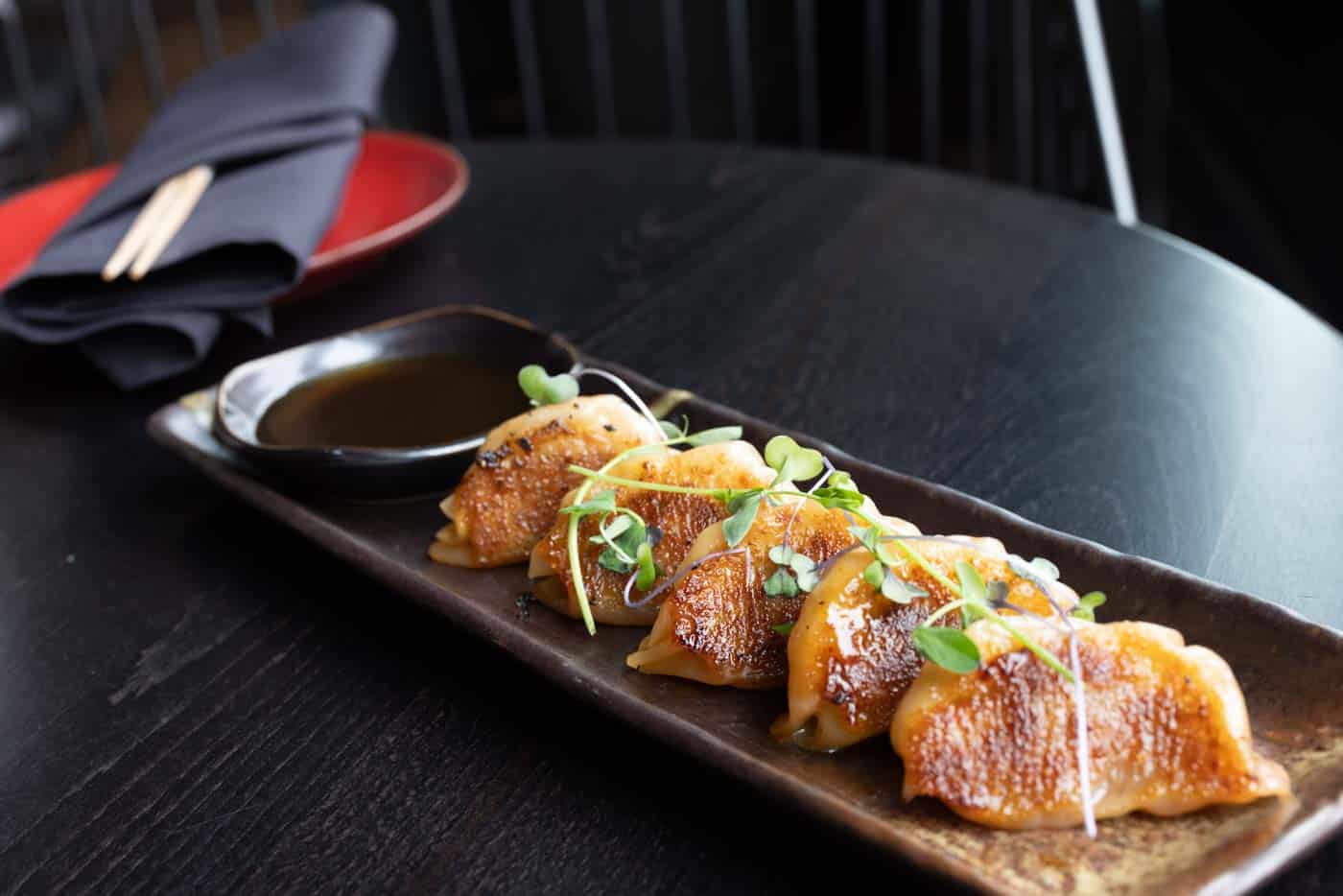

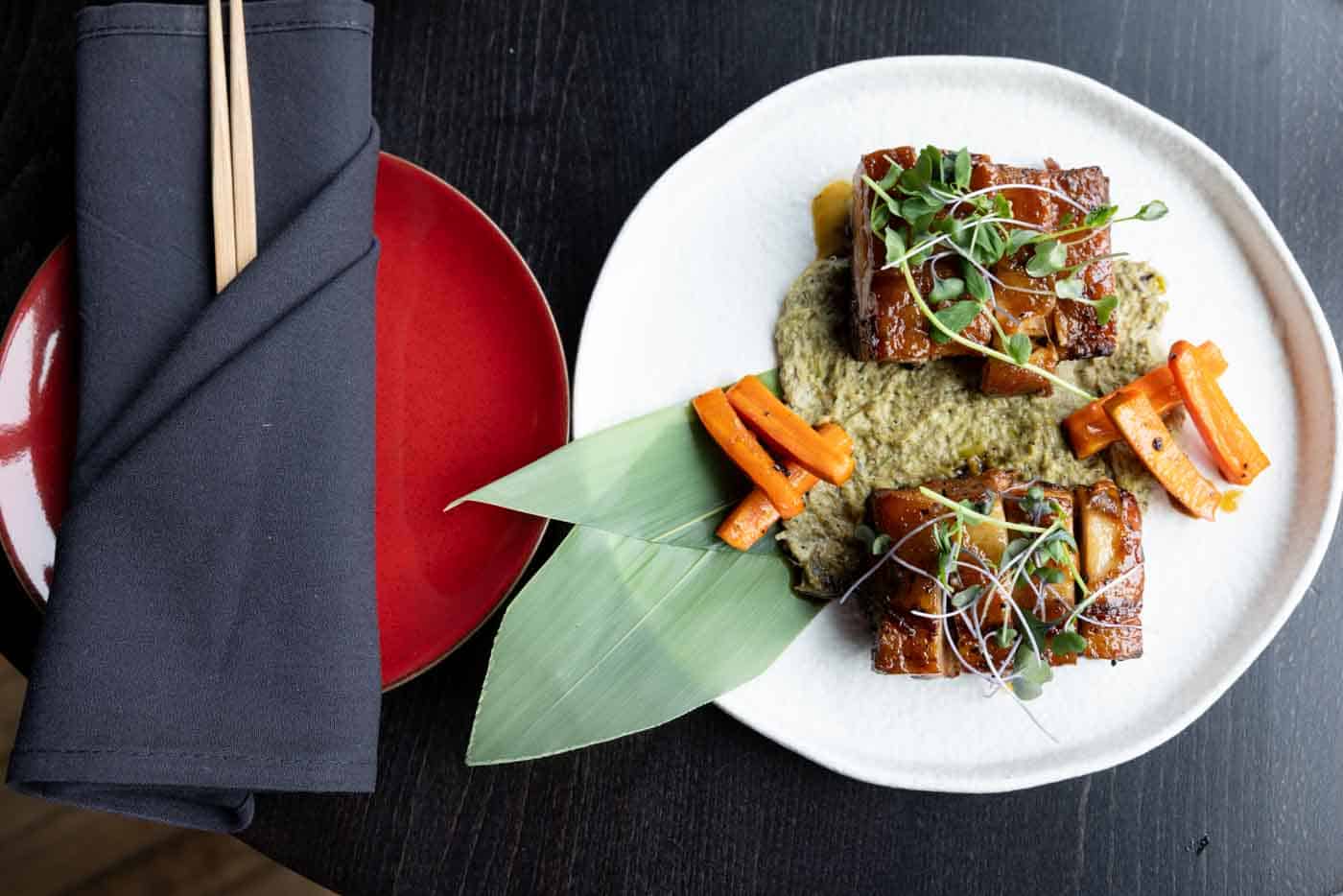
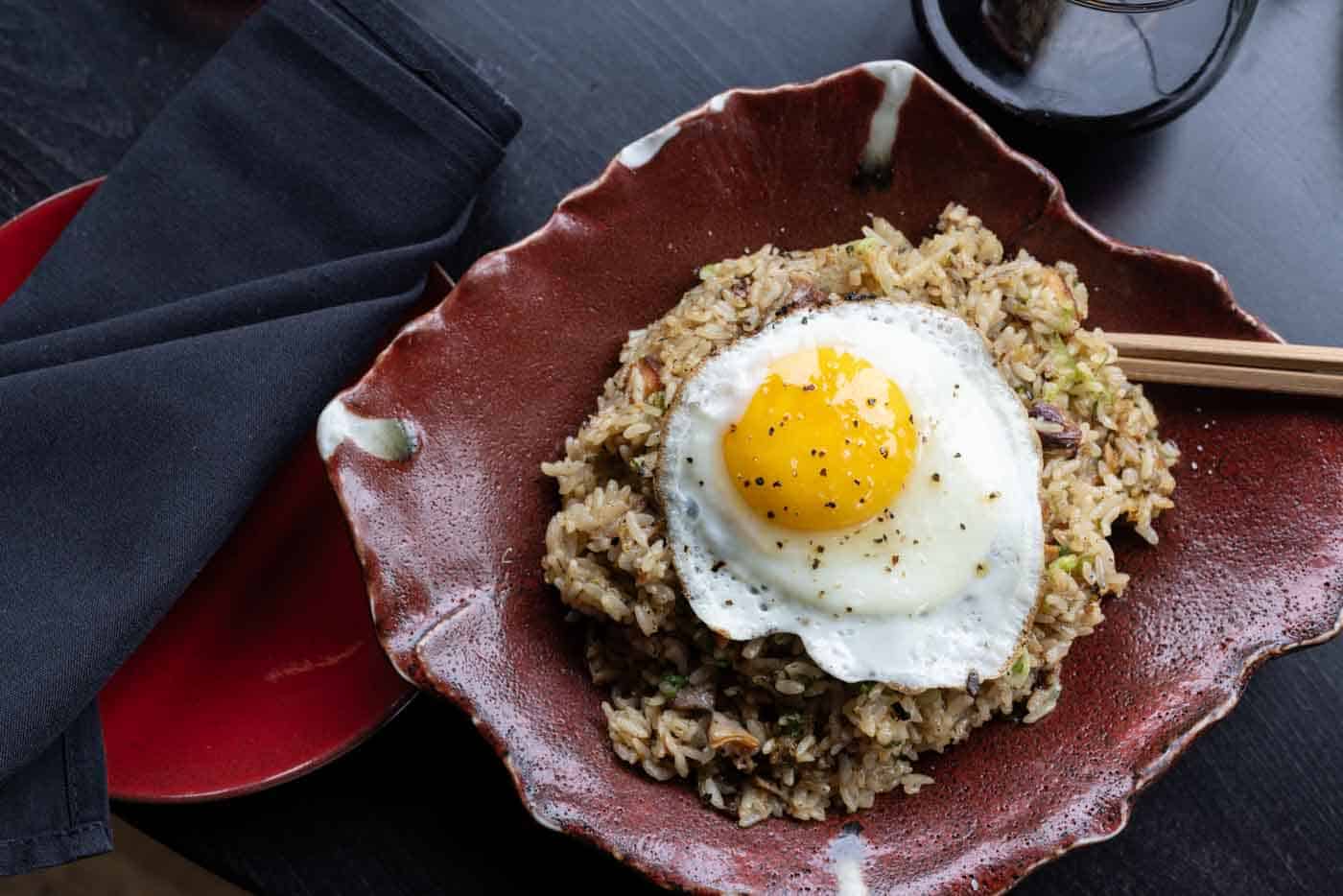
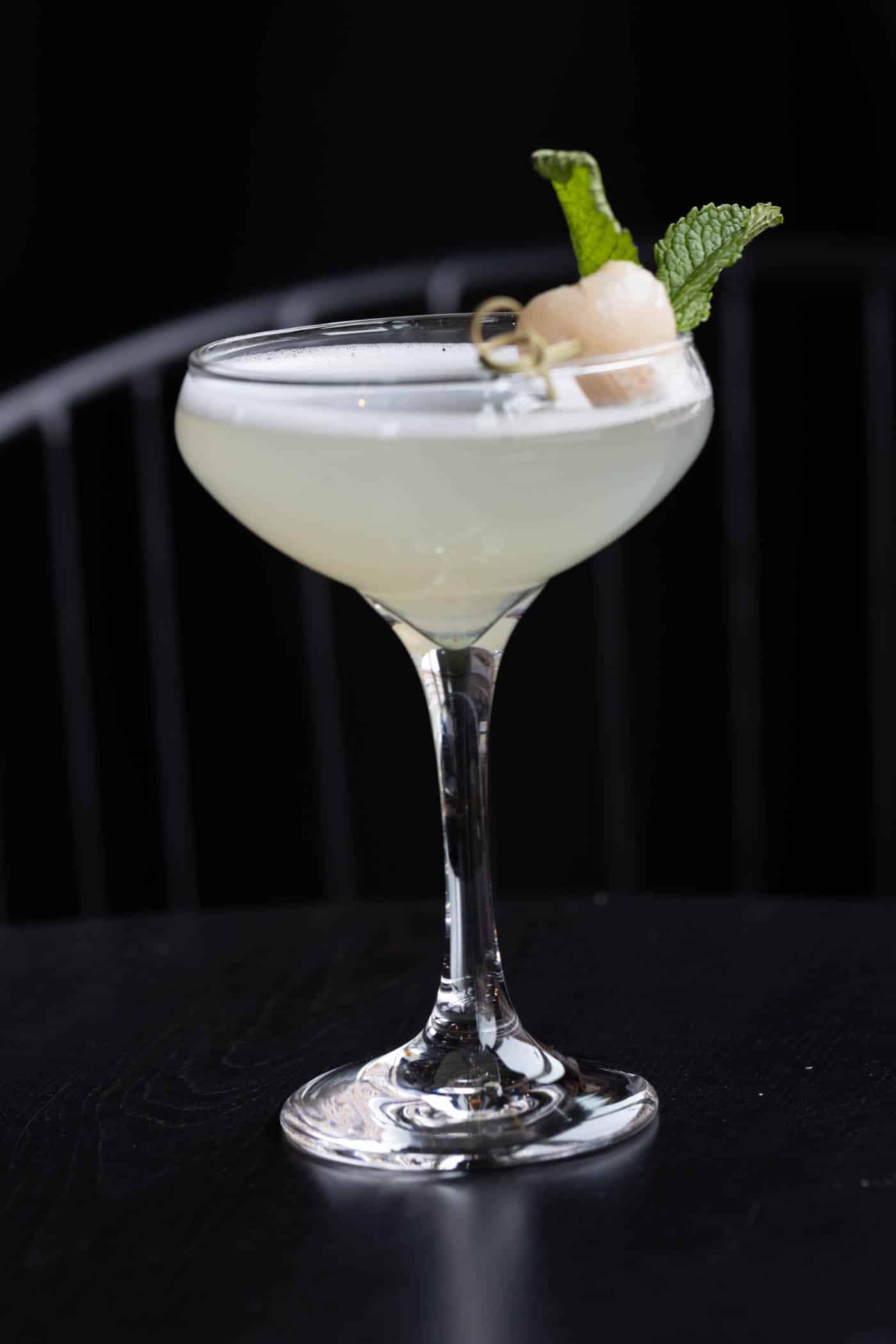
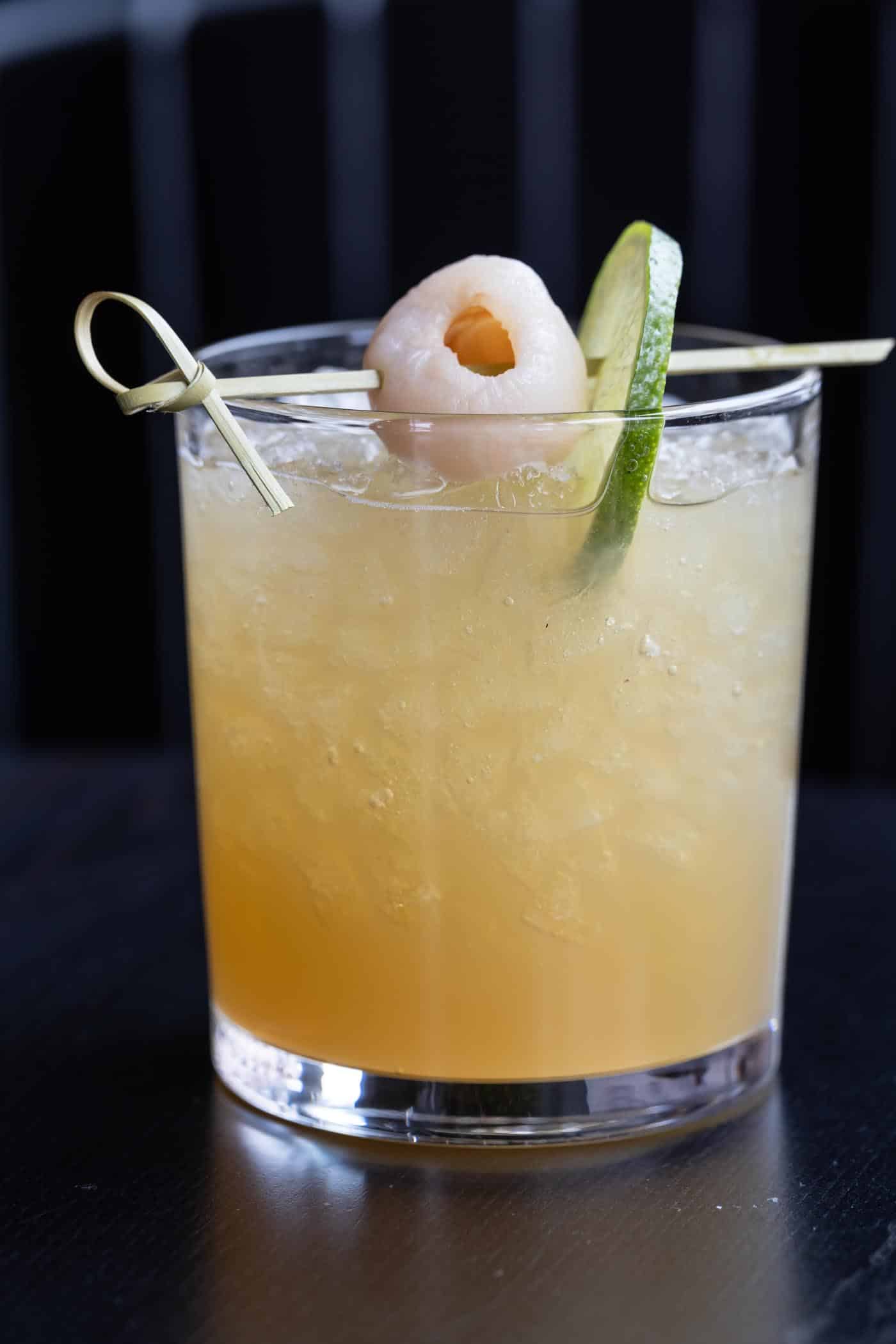
Leilani Asian Fusion is located at 2 N. River Street in Aurora. Call 331.300.2919 or visit leilaniasianfusion.com.
Sign Up for the JWC Media Email